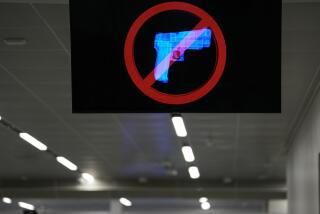Limiting Exceptions to the Rule
- Share via
Among the most welcome of several surprising decisions handed down by the Supreme Court recently was last week’s 5-4 decision reaffirming the justices’ longstanding rule that illegally obtained evidence may not be used in a criminal trial.
The so-called exclusionary rule long has troubled conservatives and some law enforcement officials, who see it as an impediment to the courts’ search for truth in criminal trials. The Supreme Court and civil libertarians have maintained that excluding unlawfully obtained evidence deters police misconduct. In a way, it is a legal version of the classic moral argument over means and ends.
Many legal scholars had expected the high court’s new conservative majority to use the case at hand last week, James vs. Illinois, to limit further the rule’s applicability. However, Justice Byron R. White joined with his colleagues William J. Brennan, Thurgood Marshall, Harry A. Blackmun and John Paul Stevens in holding that prosecutors were prohibited from using otherwise inadmissible statements obtained during the course of an illegal arrest to contradict the testimony of a witness for the defense in the murder trial of a 15-year-old Chicago youth. Significantly, White was the author of a 1984 court opinion that carved out an exception to the exclusionary rule for police officers who use defective warrants in “good faith.”
In a forceful and convincing majority opinion, Brennan argued that while the search for truth is one of the criminal justice system’s important goals, “the occasional suppression of illegally obtained yet probative evidence has long been considered a necessary cost of preserving overriding constitutional values. . . .
“So long as we are committed to protecting the people from the disregard of their constitutional rights during the course of criminal investigations,” Brennan wrote, “inadmissibility of illegally obtained evidence must remain the rule, not the exception.”


